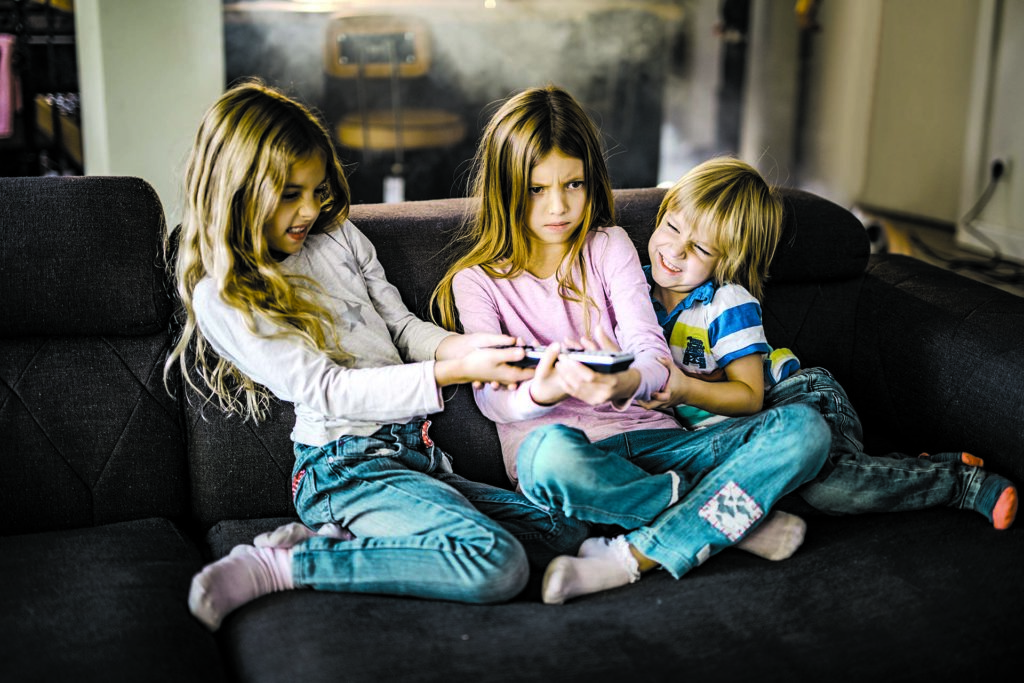
“There is a crack, a crack in everything. That’s how the light gets in.”
Licensed psychologist Harriette Wimms uses this lyric from Leonard Cohen’s song “Anthem” to think about family conflict. She’s the co-founder and clinical director of The Village Family Support Center of Baltimore.
“Even when parents feel like they’re pulling their hair out because their kids are bickering so very much,” she says, “that can be a pathway toward growth and healing.”
The COVID-19 pandemic has had a somewhat polarizing effect on families, says Daniel Bauer, a licensed marriage and family therapist at Bala Child & Family Associates in Bala Cynwyd, Pennsylvania. Increased quality time has made some families stronger. Yet “too much cooped-up, anxious time” has put a strain on
other families.
In particular, the quality of sibling relationships is one of the main predictors of mental health in old age, according to a report in The American Journal of Psychiatry. Healthy sibling relationships promote empathy and academic achievement. Less positively, sibling bullying is linked to anxiety and depression. How can parents and caregivers help their children forge friendships with one another?
All children will develop at different paces
“The first way would be eliminating competition or perceptions of it,” says Emily Simonian, head of learning and a licensed marriage and family therapist at Thriveworks in Washington, D.C. “It’s natural to compare ourselves to the people next to us, especially in childhood, but sibling rivalry can divide siblings in childhood—and even into adulthood.”
Children develop at different paces socially and emotionally, which disabilities can impact. “Create a household where individual differences are celebrated to reduce that sibling rivalry,” she says.
Conflict between siblings doesn’t always have to do with issues that kids have with each other.
“Maybe something else is bothering them and they’re taking it out on the person close to them,” Simonian says.
When kids act out, parents shouldn’t dismiss it as sibling rivalry, Bauer says. Instead, they should consider what’s going on for them internally, even if the kids themselves are too young to have the words.
Research suggests that siblings whose mothers didn’t show much favoritism when they were growing up had better relationships than siblings who reported favoritism.
Bauer notes that “no child is born into the same household.” For example, his older sister was an only child, but he was born with a built-in sibling. Each child has different experiences that can depend on various circumstances, such as parents’ finances.
Resolving sibling conflicts
To encourage friendship, Simonian says that parents can complement siblings when they’re playing with each other and get them talking about how they view their relationship.
“Ask them, ‘I know sometimes you don’t get along, but can you think of times you don’t get along and is it fun?’” she says.

Parents can also help their kids resolve conflict by teaching them how to communicate their feelings without blame or provocation. While kids should be empowered to sometimes figure things out themselves, effective modeling is key.
You may have heard the saying that a parent is only as happy as their least happy child. Wimms says to flip this notion on its head: Sometimes children are only as happy as their parents are.
“There has to be a focus on loving ourselves and paying attention to our relationships in order to support our children in doing the same in the present and in the future when they’re out on their own,” she says.
Similarly, “if we want our kids to spend time with each other, we have to learn to spend time with our kids as well,” Bauer says. Young kids won’t appreciate that their parents are working long hours to put food on the table if their emotional needs aren’t met.
“The more seen and heard they feel from their parents,” he says, “the better everything in life goes, and they’re able to be better siblings with each other.”
Encouraging more quality time
As children age, Simonian says, they will naturally want more time apart—not only from their parents, but from their siblings. That’s OK, but encourage quality time, “even if it seems they’re growing out of it.” What works for one family might not work for another, depending on a myriad of contexts.
“It’s asking more of already strained and stressed-out parents, but the one thing that we do know is that the more quality time kids spend with their parents, the better off they are,” Bauer says. “For parents to be infinitely curious about their kids and unconditionally loving to their ability—that’s what grows good homes where kids are able to thrive and be good siblings.”







